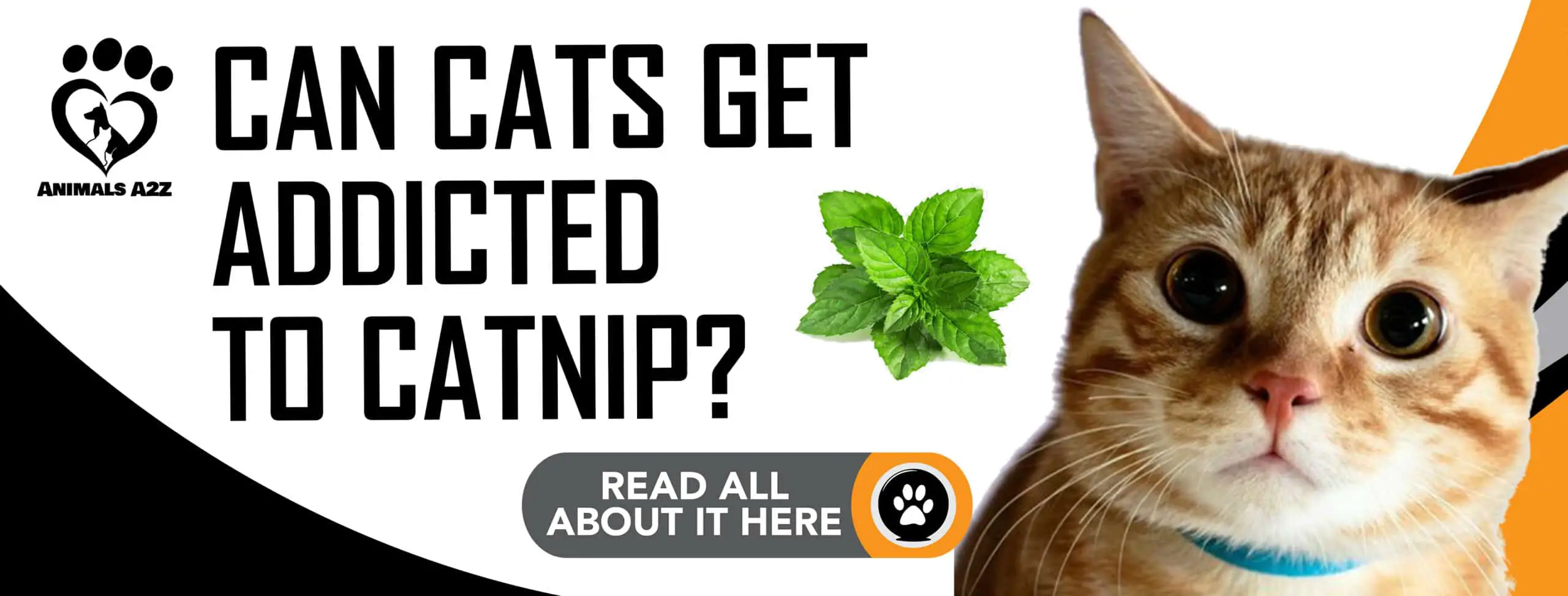So can your fluffy friends become an addict? No, not at all. Cats like the catnip but do not become addicted to it.
Table of Contents
Can cats become addicted to catnip
Catnip is not addictive. Cats are fond of catnips, not addicted. Sometimes they like to ingest, smell and just roll around on it. Catnips are not dangerous, however, it should also be regulated since some cats have very sensitive systems.
The science behind catnips
Just to be clear, catnips are not equivalent to addicting drugs for humans. Cats are very different from humans, that’s for sure. Rather than addictive, catnips to cats are pleasures that they are happy to have but can eventually live without it. Here are some things that you need to learn about catnips and how it affects a cat’s behavior:
3 reasons catnip affects your cats behavior
1. Nepetalactone
This is a herb with the same plant family as mint. Nepetalactone is a chemical present in catnips that are causing your cat to behave weirdly when presented with catnips. According to Kat Arney, a science British communicator, she said “it exerts its remarkable effects by binding to special receptor proteins in a structure in the back of a cat’s nose known as the vomeronasal organ, which is particularly sensitive to pheromones and other scent signals. In fact, it’s thought that nepetalactone resembles a chemical in cat urine, which might explain its stimulating actions.”
Nepetalactone is a stimulant that produces a certain reaction to cats similar to LSD and other drugs to humans. However, as what was said earlier, cats are different from humans. Cats would spend 10 minutes with it and move on.
2. Genetics
A research showed that cat’s reaction to catnips actually depends on genetics. Study showed that some cats are not affected by catnips. Cat’s reaction to catnip is hereditary. Pam Johnson-Bennett, a cat behaviorist and author of several books explaining cat behavior, said that one third of the cat’s population does not have the gene that reacts to nepetalactone. Your cats’ reaction to catnip will vary, some of them will rub their body against the plant and some will just sniff and show interest due to sheer curiosity. Also, kittens will not get a reaction from catnip because their pheromones are yet to be developed.
3. Cats reaction to ingesting, rolling or sniffing the catnip
Some cats would be writhing, meowing loudly and just overall weird even with a small whiff of catnip. The response to catnip varies from cat to cat, some may eat it, some will roll on it and some just like to sniff until kingdom come.
The Humane Society reported that “The most intense catnip experience starts with the nose—one whiff of the stuff and your cat promptly goes nuts. Researchers suspect that catnip targets feline ‘happy’ receptors in the brain. When eaten, however, catnip tends to have the opposite effect and your cat mellows out. Most cats react to catnip by rolling, flipping, rubbing, and eventually zoning out. They may meow or growl at the same time. Other cats become hyperactive or downright aggressive, especially if you approach them. Usually these sessions last about 10 minutes, after which your cat loses interest. It may take as long as two hours for him to ‘reset’ and become susceptible to catnip again. Be mindful of overindulgence though—cats are unlikely to overdose on catnip, but they can get sick if they eat too much. Trust your kitty to know when they’ve had enough.”
So it is highly unlikely for your cat to overdose on catnips, however, like everything, it should also be in moderation. Your cat may get sick if you give him/her too much catnip.
Common Questions about catnip
Can other kinds of felines get affected by catnips?
All kinds of cats are affected by catnips. Reader’s Digest reported that catnips have effects as well to big cats like lions and tigers with similar reactions to that of a domestic cat. They are seen sniffing, licking, chewing with head shaking and rolling over the catnips. A study conducted by Dr. N.B Todd suggested that big cat’s responded when they were exposed to catnips. Dr. Todd tested this on lions, tigers, leopards, jaguars and snow leopards.
What are the symptoms that my cat had too much catnip?
Catnips may not be addictive, but ingesting too much catnips may have effects on your cat:
- Vomiting
- Diarrhea
As of now, no other symptoms are reported. However, catnip poisoning can be very painful to your cat and it would be best if you expose the catnip to your cat in moderation.
Can catnip affect humans, dogs and other animals?
According to Dr. Todd’s research, noncats such as civets and mongooses are indifferent to catnips. However, they exhibited interest in the plant. Dogs, rabbits, mice, rats, guinea pigs and fowls were also tested according to Reader’s Digest. These animals remained passive when exposed to catnips. Several reports stated that their dogs had a reaction to catnips. However, it has been debunked by several studies because dogs cannot process the chemical compound the same way. Catnips on the other hand can be used as a food to avoid diarrhea and muscle spasms. For humans, catnips are used and ingested like tea. It is said to have antibiotic, astringent and relieves muscular aches and pains.


